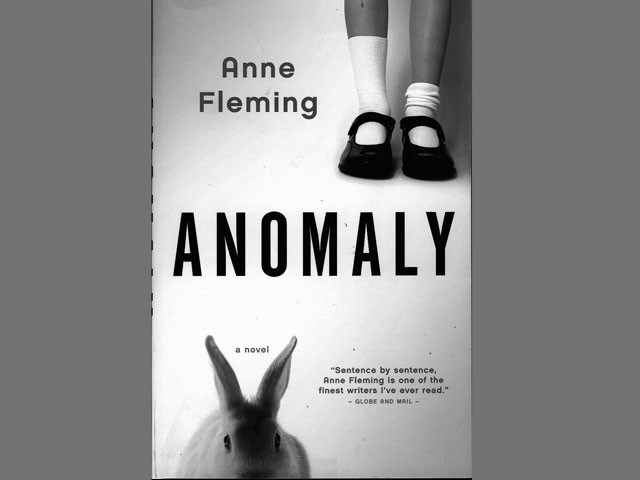Families are strange things, aren’t they? Made up of unique (sometimes conflicting) personalities, riddled with talents and troubles, there really are no “normal” families.
This idea is central to Anne Fleming’s debut novel, Anomaly, which explores relationships within a suburban family in Toronto during the 1970s.
Fleming, who was born in Toronto, was nominated for a Governor General’s Award for her first book, Pool-Hopping and Other Stories, and now lives in Vancouver.
Her novel begins in 1972, when two young sisters, Glynnis and Carol Riggs, are involved in a terrible accident that sends immediate shockwaves through the family, and goes on to shape their relationships and lives.
The reader follows the girls through their childhood and into their teenage years, as Glynnis morphs from a precocious, likeable child, into an embittered, self-conscious young woman, and Carol, the unpopular, awkward older sister, discovers her love of punk and a fascination with death.
The sisters’ antics range from heart wrenching to mildly hilarious — like when Carol (an albino) suddenly gathers the courage to dye her hair jet-black.
“Her mother, she knew, was out. She liked the house quiet. She liked breaking the quiet with her new album. She turned the volume up to four, louder than she normally played it. The music made her want to jump. She turned it up to six. The drums resonated in her chest. She jumped. The record skipped. She bobbed her head instead and retrieved the bottle from the tube inside her desk and went to the bathroom. Two hours it had to stay in. She listened to the album three times.”
Fleming has an acute eye for detail, which makes each character come alive, and her innate talent for creating a natural dialogue bestows each with a unique tone and personality.
These abilities are demonstrated in a scene where Jay, the older brother, has managed to negotiate a peace agreement between his two younger sisters, after Glynnis has returned home from the hospital after her accident, and Carol is desperately hoping to make amends.
“And so for another week Carol fetched and carried for Glynnis. She brought her breakfast in bed. She changed television channels for her. She responded to bi-minutely calls to turn the pages of Glynnis’ book. She did homework (although that really wasn’t worth much, since some of it needed correcting). She left the room backwards, bowing. She said, ‘Yes, master. No, master. Whatever you wish, master.’”
The tale is told from a shifting perspective, with four central characters narrating — Glynnis, Carol, their mother, Rowena, and Miss Balls, an elderly Girl Guide leader and friend of the family — which helps the reader to get a true sense of each character’s point of view and unique personality.
And that truly is what this novel is all about.
It’s not a plot-driven novel — rather, an intimate exploration of Fleming’s finely honed, diverse cast of characters, who are simultaneously quirky, annoying, and loveable.
Throughout the novel, Fleming manages to maintain a seamless transition between characters and time periods, which can be a tricky feat.
There is no true beginning, middle and end to this story. In fact, the reader is left with a slight sense of uncertainty at the end of the novel, when some central issues are left unresolved.
But this uncertainty is balanced by a sense of confidence that the family has grown closer over the years, despite their individual struggles and differences, and these relationships will help to resolve their struggles.




